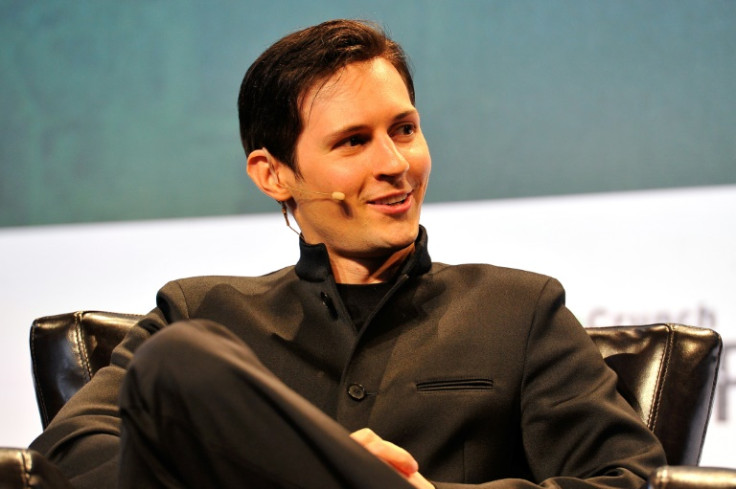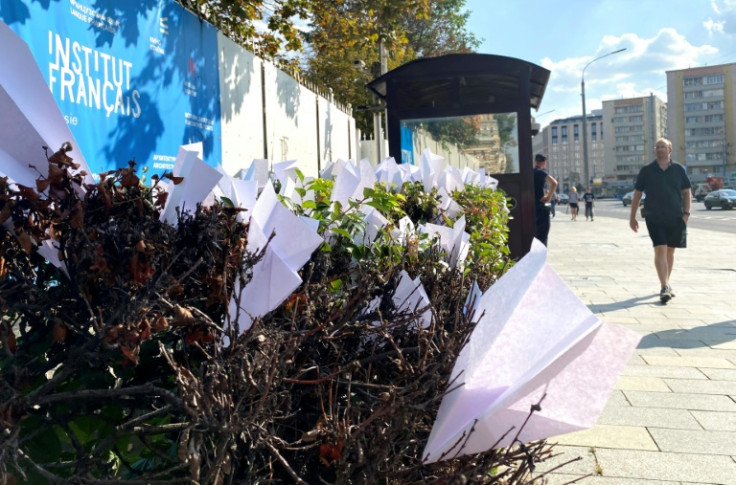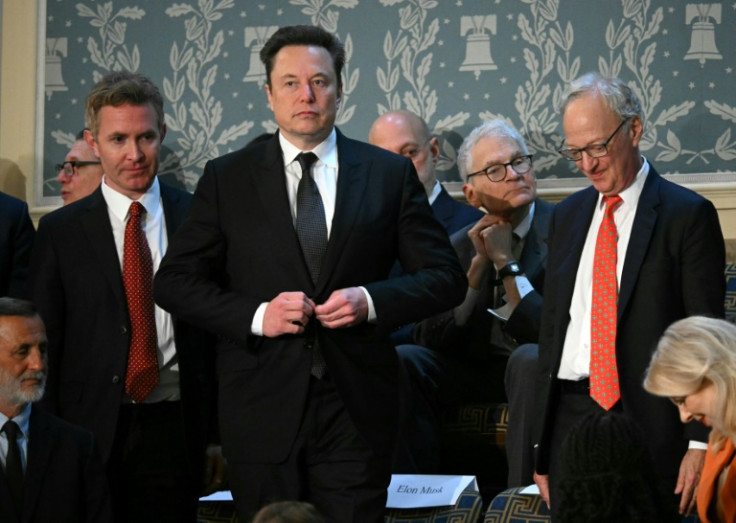Durov Has 'Nothing To Hide', Says Telegram After France Arrest

France held the Russian-born founder of Telegram Pavel Durov in custody for a second day of questioning on Monday over alleged offences related to the popular but controversial messaging app, which insisted he had "nothing to hide".
His arrest after flying into the Le Bourget airport outside Paris late Saturday is the latest extraordinary twist in the career of one of the world's most influential tech icons.
The detention of Durov, 39, was extended beyond Sunday night by the investigating magistrate who is handling the case, according to a source close to the investigation. This initial period of detention for questioning can last up to a maximum of 96 hours.
When this phase of detention ends, the judge can then decide to free Durov, whose fortune is estimated by Forbes magazine at $15.5 billion, or press charges and remand him in further custody.
Russia has accused France of "refusing to cooperate" while fellow tech mogul Elon Musk swept to Durov's defense and called for his release. Durov holds a French passport in addition to other nationalities.
Durov had arrived in Paris from Baku, Azerbaijan, and was planning to have dinner in the French capital, a source close to the case said.
He was accompanied by a bodyguard and a personal assistant who always accompany him, added the source, asking not to be named.
France's OFMIN, an office tasked with preventing violence against minors, had issued an arrest warrant for Durov in a preliminary investigation into alleged offences including fraud, drug trafficking, cyberbullying, organised crime and promotion of terrorism, another source said.
Durov is accused of failing to take action to curb the criminal use of his platform.
Telegram said in response that "Durov has nothing to hide and travels frequently in Europe."
"Telegram abides by EU laws, including the Digital Services Act -- its moderation is within industry standards," it added. "It is absurd to claim that a platform or its owner are responsible for abuse of that platform."
Durov founded Telegram in 2013 after his first project, the Russian social network VKontakte (VK), ran into ownership difficulties he blamed on the Kremlin. He left Russia in 2014.
Telegram has become hugely popular partly due to the ease of viewing and posting videos on its messaging "channels".
But critics accuse it of hosting often illegal content ranging from extreme sexual imagery, disinformation and also services for buying drugs.
Russia's embassy to Paris said it had demanded access to Durov but had had no response from France, saying "the French side is refusing to cooperate".
Musk, who leads the Tesla car group and the X social media platform, formerly Twitter, posted the hashtag #FreePavel on X and commented in French, "Liberte Liberte! Liberte?" (Freedom Freedom! Freedom?).
US whistleblower Edward Snowden, who took asylum in Russia, blasted "an assault on the basic human rights of speech and association", saying he was saddened Paris had "descended to the level of taking hostages as a means for gaining access to private communications."
One of the key questions is why Durov flew into France when he would have likely been aware he was wanted in the country. "Perhaps he had a feeling of impunity," said a source close to the case, asking not to be named.
Telegram, an encrypted messaging app based in Dubai, has positioned itself as a "neutral" alternative to US-owned platforms, which have been criticised for their commercial exploitation of users' personal data.
It also plays a key role in the war between Ukraine and Russia after Moscow's invasion of its neighbour.
The app is used by Kyiv including President Volodymyr Zelensky in regular video statements to push Ukraine's message across but also by the so-called Russian "Z-bloggers" who strongly back the war and report from the front.
In a rare interview given to right-wing talk show host Tucker Carlson in April, Durov predicted Telegram would have one billion users next year and insisted that despite his wealth his priority was to be "free".
"My mission in life was to allow other people to also become free... and using the platforms that we created my hope was that they could express their freedoms. This is the mission of Telegram."


© Copyright AFP 2025. All rights reserved.





















